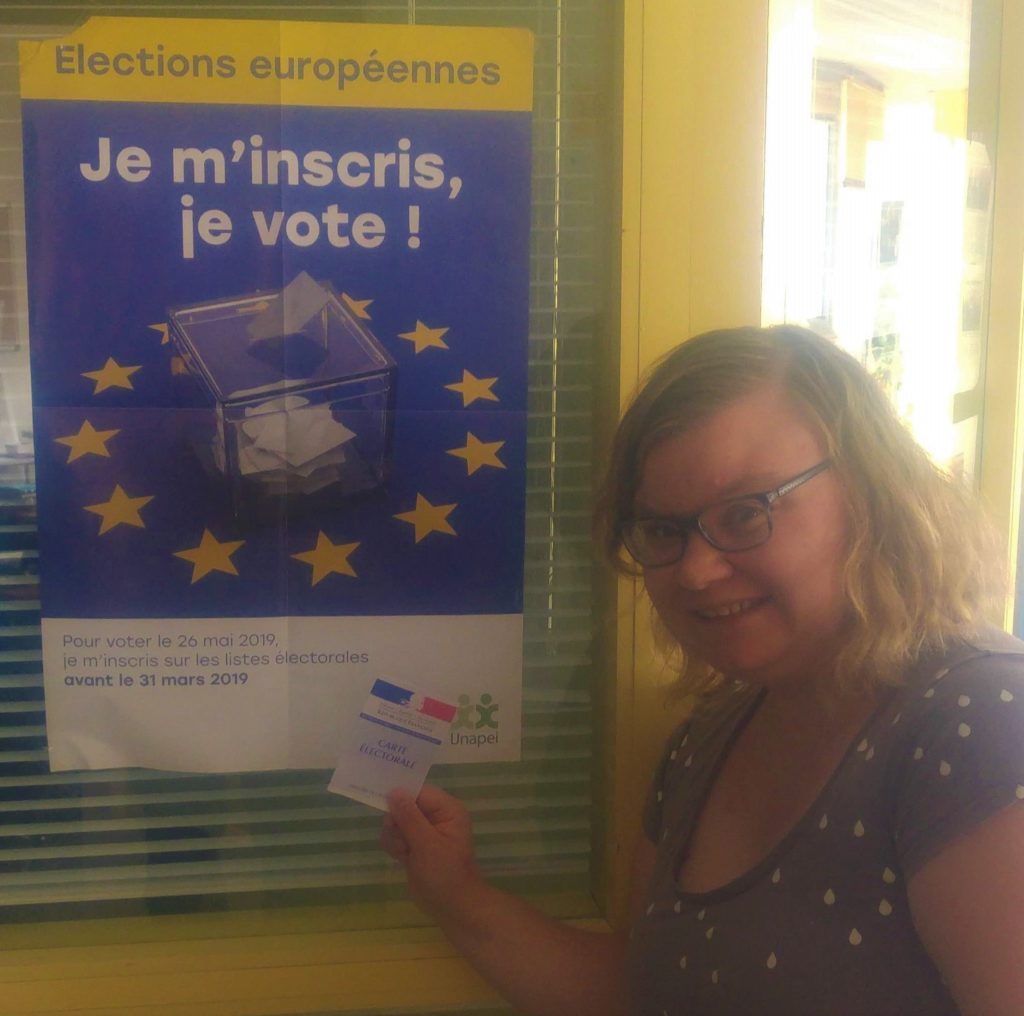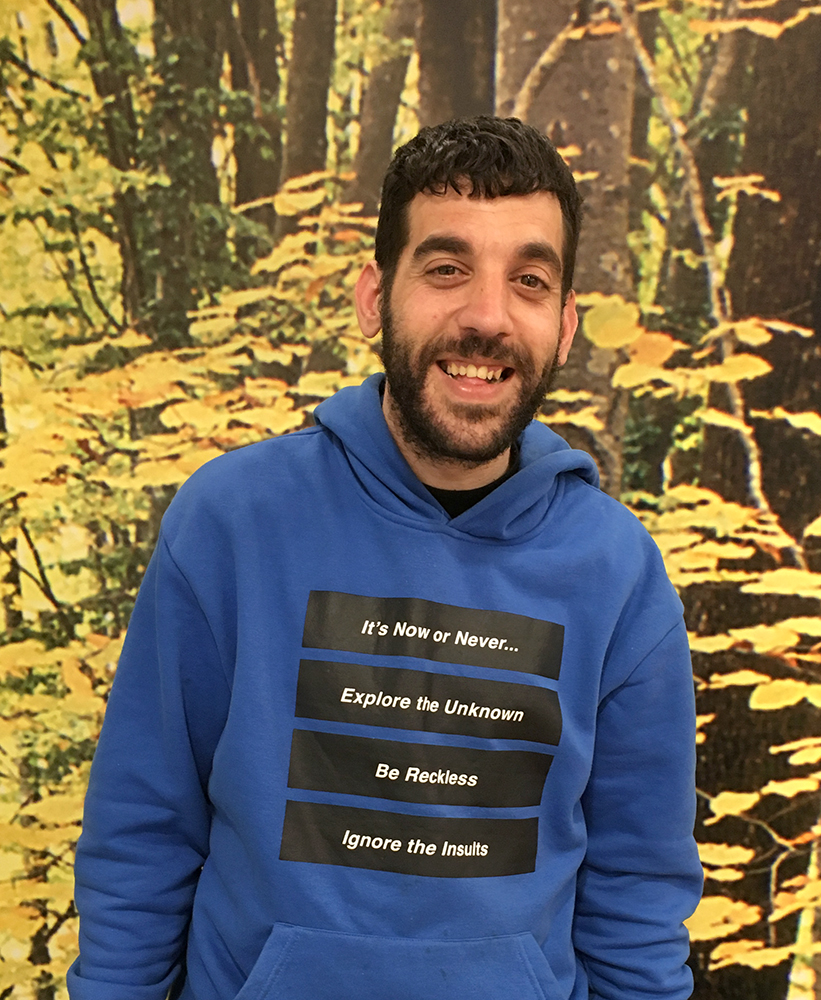As the Parliament magazine reports, this is due to changes in the electoral laws in member states such as France, Germany or Spain. These three have recently adapted their legislation to grant people under guardianship the right to vote. They joined countries like Denmark, Ireland and Slovakia, which all opened up voting rights since the last European elections in 2014.
An estimated 250 000 people are affected, with 100 000 in Spain alone, 80 000 in Germany and 65 000 in France, according to a report by the EU’s Fundamental Rights Agency (FRA).
The changes constitute an “important step to recognise people with intellectual disabilities as fully-fledged citizens, with the same rights as everybody else”, according to Jyrki Pinomaa, president of the Europe-wide intellectual disability rights organisation Inclusion Europe.
UN CRPD as a driver for change
What causes EU member states to revise their legislation? According to the FRA report, “legal capacity has been a focus of reforms at the national level linked to ratification of the United Nations Convention on the Rights of Persons with Disabilities (CRPD)”. Ratified by all EU member states and the EU itself, the convention recognises the equal participation of people with disabilities in political and public life, including the right to vote and be elected. Certainly, greater awareness of discrimination suffered by people with disabilities and advocacy by disability rights organisations (who have pressured for voting rights in all countries that changed their laws) also plays a pivotal role.
“In many cases, it is people with intellectual disabilities themselves who lead the way to change”, says Jyrki Pinomaa. An example is Martin Rosenlind. At the time the Dane applied for getting a guardian because of problems handling his finances, he had no idea that this would affect his right to vote. Fed up with the situation in 2015, he decided to sue the Danish state, and went as far as the Supreme Court. He lost his case, which made him feel “sad and excluded”. But in December 2018 the government decided to make an amendment to the Guardianship Actto allow persons under guardianship to partially retain their legal capacity: Martin Rosenlind regained his right to vote.
However, according to a report by the European Economic and Social Committee, 500,000 people in the EU are still deprived of their right to vote. 5 EU member states are still denying the right to vote and 10 leave the decision up to an individual assessment by a judge or guardian. According to Jyrki Pinomaa, all countries must ensure elections are accessible, for example by providing information about the elections in easy-to-read language: “People with intellectual disabilities value their right to vote, maybe more than anyone else. So we should make sure they can exercise it.”
Get in touch
Inclusion Europe
European movement of people with intellectual disabilities and their families
Angelika Hild, Communications Officer:
a.hild@inclusion-europe.org / 0032 (0)2 502 28 15
Facebook – Twitter – Youtube: @InclusionEurope
Website: www.inclusion-europe.eu
Pictures of people with intellectual disabilities who will be voting:
Justine Lambole (20 years, France)
Cristóbal Otero (33 years, Spain)
Julian Peters (30 years, Germany)
Martin Rosenlind (37 years, Demark)
Picture President Inclusion Europe:
Sources:
European Union Agency for Fundamental Rights:
Who will (not) get to vote in the 2019 European Parliament elections?
European Economic and Social Committee:
The real right of persons with disabilities to vote in EP elections
PowerPointPresentation
Inclusion Europe:
Map on voting rights
Manifesto, Information on how to make elections accessible, more quotes from people with intellectual disabilities etc.
Justine Lambole is a 20-year-old French woman who was deprived of her right to vote until the change of law. Now, she has registered on the electoral lists, and she will vote for the first time in the European elections in May. Justine is a client of the Foyer de la Fraternité in Plérin in western France.
You have not been able to vote for many years. How did you experience this?
It did something to me: I was disappointed, and I was angry at the judge who had taken the right to vote away from me because I did not understand why.
How was your right to vote taken away?
At the time I was in a home for young people. The judge asked me questions about day-to-day politics which I did not know how to answer. I was not so up-to-date in politics at that time. So the judge withdrew my right to vote.
Have you ever tried to recover your voting rights?
Yes, indeed. I spoke to Caroline, my contact at the Foyer de la Fraternité, and she offered to support me in trying to recover my right to vote with the help of my legal representative. This became my personal project as part of my activities at the Foyer.
What was your reaction when you learned that you would be able to vote at the next election?
I was really happy. I am a citizen, I consider myself able to vote, so I always wanted to vote. Finally, I will be able to do it.
The European elections will be your first elections. How will you prepare yourself?
I have already informed myself on the internet and I am discussing the elections with the supervisors at the Foyer de la Fraternité. All of this helps me decide – but in the end, it’s going to be my own choice.
How will the election day be like for you?
I will go on my own to the polling station. It is near the Foyer de la Fraternité and I feel able to vote independently. If I have any doubts, I will ask the supervisors before.
How do you think will you feel like after having voting for the first time?
I think I will feel liberated, finally equal to others.
Why are the European elections important to you?
The election results will influence our quality of life, our future.
There are still countries in Europe that prohibit people with intellectual disabilities from voting. What is your opinion on this?
It should be a normal thing to be able to vote as a citizen. Nobody has the right to take this right away from someone else, and I do not think it’s wise to ban someone from voting.
Cristóbal Otero is a 33-year old man from Spain. Since he has been with Som – Fundació, he has started living independently and working in an ordinary company. He already voted in an election before his legal capacity status was changed. Now he is glad having regained his right to vote thanks to the reform of the Spanish electoral law.
Cristóbal lives on his own in an apartment in Barcelona. He has been working for 9 years in a service company for DIY and the household. Cristóbal is part of the #YoTbPuedo programme of the foundation. He collaborates as a volunteer in sports activities of the Voluntaris2000 association and in the activities that take place at Som – Fundació, such as its April Fair or the Christmas lunch.
You have already voted once before you were deprived of your legal capacity, when you were 18 years old. How did you experience this?
It went all right. There were no problems. 
How old were you when your legal capacity was revoked?
23 years old
Afterwards, you were not allowed to vote. How did you feel when you could not exercise your right to vote anymore? Did you have friends who could vote?
I was angry. There are many problems in our country, such as corruption, and I could not contribute to changing the situation. I also talked with my family and other people about my situation and everyone said it was not fair.
How do you inform yourself about politics?
I watch television, I read the online newspapers, and I also use my cell phone.
You voted for the Spanish Senate and the Congress. How did you experience this?
It was a good experience; the polling station was close to my house. Here we vote with voting slips, not with machines. I felt proud to be able to vote. I always was determined to vote.
How did you know that the law had changed and that you would be able to vote?
We were told at Som – Fundació when it was approved. I was very happy! Now there is one more person who votes in our country.
How are you going to prepare for the European elections?
It is the first time that I will vote at the European elections.
I still have to decide who to vote for; I am going to inform myself, but I think I will vote for the same party as in the general elections.
Why are the European elections important to you?
The European Union decides about the general lines in important areas such as our rights. The EU also has a large amount of funds at its hands and the European Parliament has a voice in how this money is redistributed. This is why it is important to choose who will be our MEPs.





